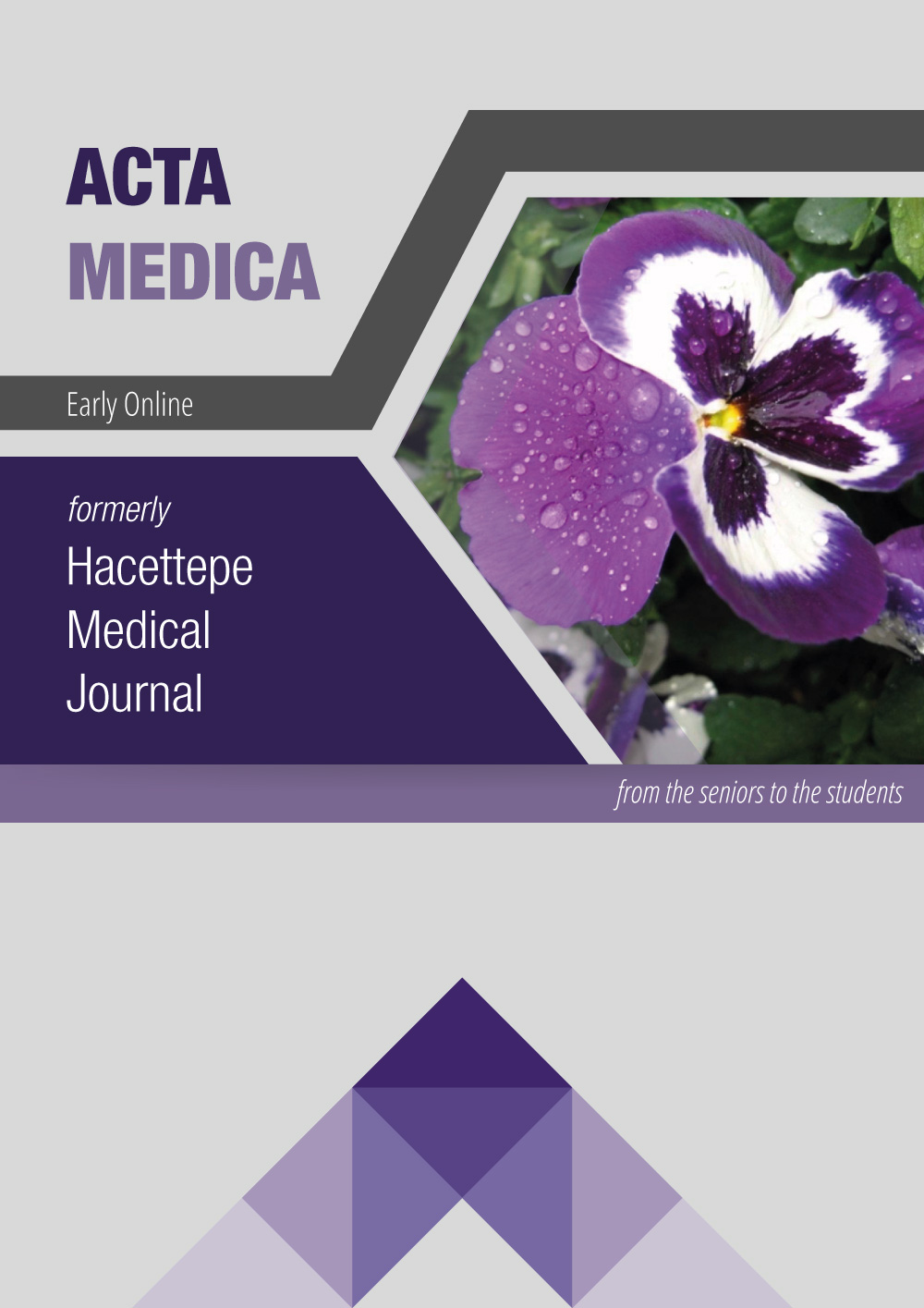C-Reactive Protein Levels during High Dose Steroid Treatment for COVID-19 Pneumonia
DOI:
https://doi.org/10.32552/2022.ActaMedica.638Keywords:
coronavirus disease 2019, mortality, c-reactive protein, steroid treatmentAbstract
Objectives: Inflammation is the main cause of systemic damage in SARS-COV2 infections. Steroid treatment has been shown to reduce mortality in COVID-19. However, there is no index to monitor treatment responses to steroids. Here, we evaluated the validity of serial C-reactive-protein (CRP) follow-up for predicting the outcome in the patients receiving steroid therapy.
Material and methods: In our retrospective cohort study, four hundred twenty-five patients were included. All patients received dexamethasone 6 mg/day or equivalent dose of steroid as much as needed with the onset of hypoxia (SaO2 ≤ 93%). We divided patients into two groups according to outcome (deceased/discharged). We then compared demographic, clinical and laboratory features between the groups. Lastly, we evaluated the thresholds of CRP decline associated with COVID-19 associated mortality at 3th, 5th days and at the end of treatment.
Results: COVID 19 associated mortality rate of the cohort was 6.1% (26/425). In multivariate analysis, in which survival was evaluated, parameters related to death due to COVID-19 in the steroid group were high NEWS-2 score (0.82, CI 95 % 0.68-0.97, p=0.02), increased Charlson comorbidity index (0.68,CI 95% 0.51-0.90,p= 0.007) and absolute CRP level at the end of treatment (0.97,CI 95%, p<0.001). In addition, cut-off levels of CRP reduction related to COVID-19-associated mortality during steroid therapy were found as follows: less than 33% (sensitivity 75%, specificity 64.1%) on day 3, less than 43.5% (sensitivity 81.8%, specificity 70.8%) on day 5 and less than 55% at the end of the treatment (sensitivity 80.7%, specificity 71.8%).
Conclusions: Serial CRP measurement from the third day of steroid therapy can be used to predict mortality in COVID-19 patients receiving steroids.
Downloads
Downloads
Published
How to Cite
Issue
Section
License
Copyright (c) 2022 Acta Medica

This work is licensed under a Creative Commons Attribution-NonCommercial-NoDerivatives 4.0 International License.


